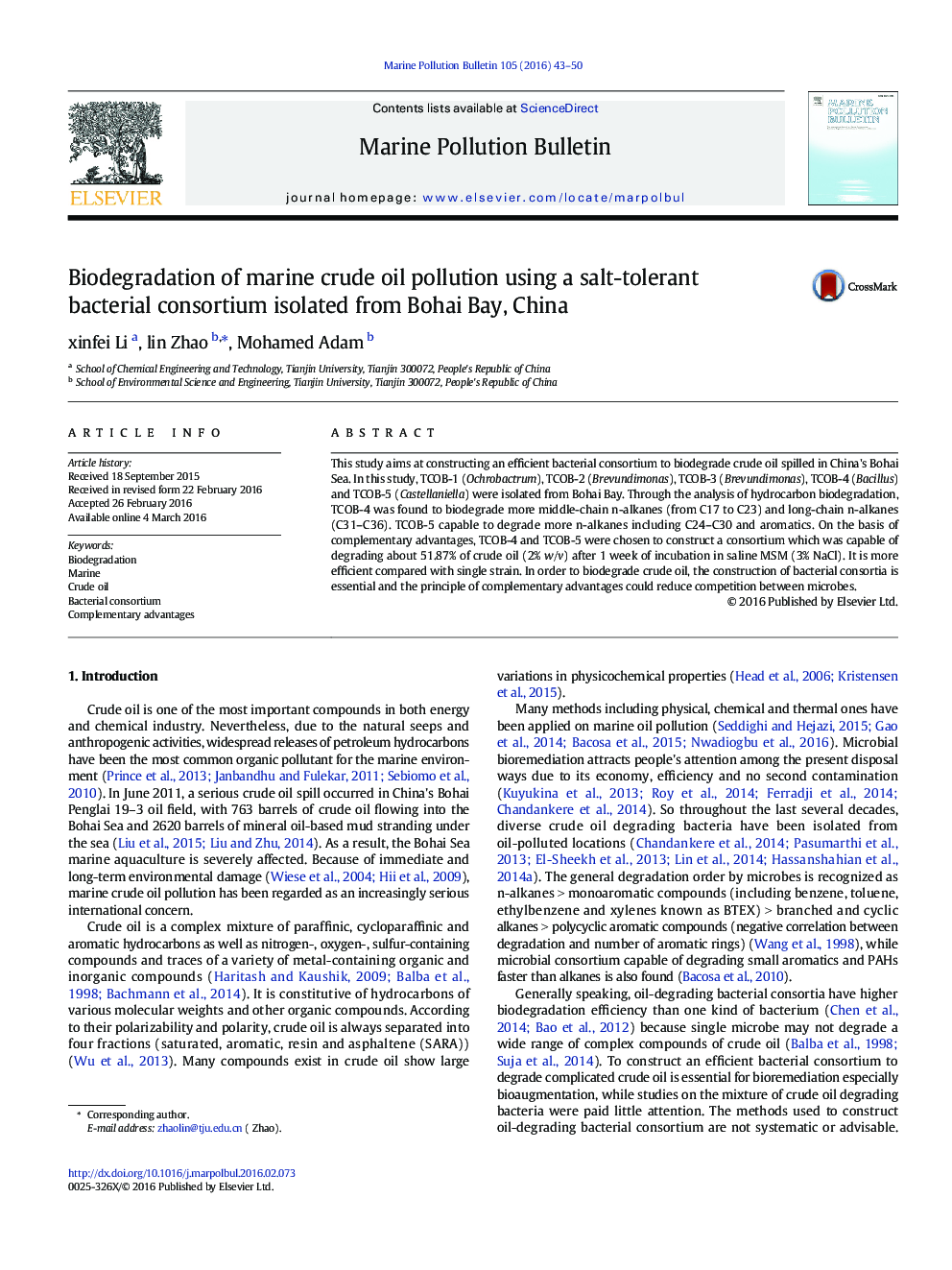| Article ID | Journal | Published Year | Pages | File Type |
|---|---|---|---|---|
| 4476513 | Marine Pollution Bulletin | 2016 | 8 Pages |
•Oil-degrading bacterial consortia are more efficient than one kind of bacterium.•The biodegradation efficiency of TPH by indigenous bacterial consortium reaches 51.87%.•Bacterial consortium consisting of inefficient bacteria exhibited low degradation efficiency.•Inappropriate adding of inefficient bacteria may reduce the dosage of efficient ones and reduce the degradation efficiency.•The utilization of complementary advantages is recommendable.
This study aims at constructing an efficient bacterial consortium to biodegrade crude oil spilled in China's Bohai Sea. In this study, TCOB-1 (Ochrobactrum), TCOB-2 (Brevundimonas), TCOB-3 (Brevundimonas), TCOB-4 (Bacillus) and TCOB-5 (Castellaniella) were isolated from Bohai Bay. Through the analysis of hydrocarbon biodegradation, TCOB-4 was found to biodegrade more middle-chain n-alkanes (from C17 to C23) and long-chain n-alkanes (C31–C36). TCOB-5 capable to degrade more n-alkanes including C24–C30 and aromatics. On the basis of complementary advantages, TCOB-4 and TCOB-5 were chosen to construct a consortium which was capable of degrading about 51.87% of crude oil (2% w/v) after 1 week of incubation in saline MSM (3% NaCl). It is more efficient compared with single strain. In order to biodegrade crude oil, the construction of bacterial consortia is essential and the principle of complementary advantages could reduce competition between microbes.
